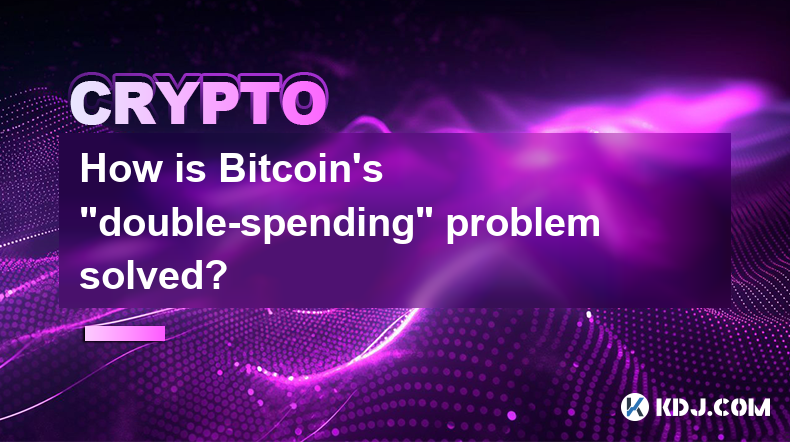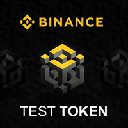-
 Bitcoin
Bitcoin $96,590.0972
0.49% -
 Ethereum
Ethereum $2,765.3807
4.00% -
 XRP
XRP $2.5766
0.17% -
 Tether USDt
Tether USDt $1.0001
0.06% -
 BNB
BNB $668.5930
3.38% -
 Solana
Solana $172.2637
1.94% -
 USDC
USDC $1.0001
0.00% -
 Dogecoin
Dogecoin $0.2469
3.08% -
 Cardano
Cardano $0.7749
1.69% -
 TRON
TRON $0.2374
-0.11% -
 Chainlink
Chainlink $17.7782
2.15% -
 Avalanche
Avalanche $25.8192
5.05% -
 Sui
Sui $3.4204
4.46% -
 Stellar
Stellar $0.3349
2.79% -
 Litecoin
Litecoin $126.1574
-1.18% -
 Toncoin
Toncoin $3.7449
5.11% -
 Shiba Inu
Shiba Inu $0.0...01563
3.58% -
 Hedera
Hedera $0.2168
1.39% -
 UNUS SED LEO
UNUS SED LEO $9.7077
-0.24% -
 Hyperliquid
Hyperliquid $24.8673
-0.15% -
 MANTRA
MANTRA $8.1652
7.49% -
 Polkadot
Polkadot $5.0478
-0.15% -
 Bitcoin Cash
Bitcoin Cash $321.2088
2.37% -
 Bitget Token
Bitget Token $4.9388
3.98% -
 Ethena USDe
Ethena USDe $0.9994
0.12% -
 Uniswap
Uniswap $9.0582
3.50% -
 Dai
Dai $1.0001
0.01% -
 Monero
Monero $234.7674
0.29% -
 NEAR Protocol
NEAR Protocol $3.4835
5.07% -
 Pepe
Pepe $0.0...09648
5.69%
How are the roles of Bitcoin nodes and miners different in the network?
While nodes validate transactions and maintain the blockchain's integrity, miners create new blocks and drive its growth, making both essential for Bitcoin's functioning and evolution.
Feb 22, 2025 at 01:12 am

Key Points
- Nodes validate transactions and maintain the blockchain, while miners create new blocks and earn rewards.
- Nodes ensure the integrity and security of the Bitcoin network, while miners drive the growth and expansion of the blockchain.
- Both nodes and miners play crucial roles in the functioning and evolution of the Bitcoin ecosystem.
Roles of Bitcoin Nodes
Nodes play a vital role in the Bitcoin network by performing the following functions:
- Transaction Validation: Nodes verify every Bitcoin transaction to ensure its authenticity, validity, and compliance with network rules.
- Blockchain Maintenance: Nodes store and maintain a complete copy of the Bitcoin blockchain, ensuring its integrity and preventing tampering.
- Network Connectivity: Nodes communicate with each other to propagate new blocks and transactions, maintaining the network's stability and resilience.
There are different types of nodes, including:
- Full Nodes: Store a complete copy of the blockchain and perform all validation and network maintenance tasks.
- Lightweight Nodes: Store only a portion of the blockchain and rely on other nodes for transaction validation and block propagation.
- Mining Nodes: Nodes that also engage in mining operations to create new blocks.
Roles of Bitcoin Miners
Miners play a pivotal role in the Bitcoin network by performing the following functions:
- Block Creation: Miners solve complex mathematical problems to create new blocks that contain a batch of verified transactions.
- Transaction Ordering: Miners determine the order in which transactions are included in a block, prioritizing those with higher fees.
- Block Verification: Miners verify newly created blocks by checking their mathematical correctness and consistency with the blockchain rules.
- Reward Earning: Miners receive rewards in the form of bitcoins for successfully creating and verifying blocks.
The mining process consumes significant computational resources, making it energy-intensive. However, this process is critical for ensuring the security and immutability of the Bitcoin network.
Differences between Nodes and Miners
- Nodes focus on transaction validation and blockchain maintenance, while miners focus on block creation and reward earning.
- Nodes are responsible for ensuring the integrity of existing data, while miners drive the growth and expansion of the blockchain.
- Nodes are generally less resource-intensive than miners, as they do not require extensive computational power.
FAQs
- What is the relationship between nodes and miners?
Nodes and miners are interconnected and mutually dependent. Nodes provide miners with the necessary transaction data and blockchain state, while miners create and verify new blocks that nodes incorporate into the blockchain.
- Can a node also be a miner?
Yes, a node can be a mining node, which combines the functions of transaction validation, blockchain maintenance, and block creation.
- How is the mining reward determined?
The mining reward is a fixed amount of bitcoins that decreases by half approximately every four years. The current reward is 6.25 bitcoins per block.
- What are the incentives for running a node?
Running a node contributes to the security, stability, and decentralization of the Bitcoin network. Node operators may also earn rewards in the form of small transaction fees.
Disclaimer:info@kdj.com
The information provided is not trading advice. kdj.com does not assume any responsibility for any investments made based on the information provided in this article. Cryptocurrencies are highly volatile and it is highly recommended that you invest with caution after thorough research!
If you believe that the content used on this website infringes your copyright, please contact us immediately (info@kdj.com) and we will delete it promptly.
- Here’s Why XRP Price Could Hit $6 Soon
- 2025-02-23 06:55:25
- ETH Price Prediction 2025 - Will ETH Drop by -15.90% to $2,302.40 by Feb 26, 2025?
- 2025-02-23 06:55:25
- Shiba Inu Price Prediction: SHIB's Potential Value If It Matches XRP, BNB, or Solana's Market Cap
- 2025-02-23 06:55:25
- Bitcoin Is the Ultimate Store of Value in an Era of Increasing Instability
- 2025-02-23 06:55:25
- DTX Exchange: Why Analysts Are Betting Big on the Presale
- 2025-02-23 06:45:26
- Top 5 Meme Coins to Buy Now: Arctic Pablo Coin (APC) Leads the Rally
- 2025-02-23 06:45:26
Related knowledge

What are the long-term investment risks of Bitcoin?
Feb 22,2025 at 05:30pm
Key PointsVolatility and price fluctuationsRegulatory uncertaintySecurity risksCompetition from altcoinsMarket manipulation and scamsTransaction feesEnvironmental concernsLong-Term Investment Risks of BitcoinVolatility and Price FluctuationsBitcoin's high volatility is a double-edged sword. While it has the potential to generate substantial returns, it ...

What are the main contents of Bitcoin's "white paper"?
Feb 21,2025 at 04:36am
Key Points:Understanding Bitcoin's Genesis: The White Paper's IntroductionA Decentralized Digital Currency: Bitcoin's Core ConceptBlockchain Technology: The Foundation of Bitcoin's Immutable LedgerProof-of-Work: Securing Bitcoin's NetworkThe Design of Bitcoin's Currency: Issuance, Scarcity, and DivisibilityBitcoin's Potential Applications and Future Pro...

How does Bitcoin's distributed ledger ensure consistency?
Feb 22,2025 at 10:06pm
Key Points:Bitcoin employs a distributed ledger, also known as a blockchain, to maintain a tamper-proof and consistent record of transactions.The blockchain is a decentralized network of computers that collectively validate and store transaction data.Bitcoin's distributed ledger ensures consistency through consensus mechanisms and cryptographic algorith...

What does the Cryptographic Fundamentals of Bitcoin consist of?
Feb 21,2025 at 12:06pm
Key PointsUnderstanding the cryptographic algorithms used in BitcoinFamiliarization with the Bitcoin blockchain and its underlying mechanicsExamination of the security measures that protect Bitcoin from attackAnalysis of the decentralized nature of Bitcoin and its implicationsDiscussion of the scalability and transaction fee issues associated with Bitco...

What is Bitcoin's relationship with blockchain technology?
Feb 22,2025 at 07:00pm
Bitcoin's Intertwined Relationship with Blockchain TechnologyKey Points:Definition of blockchain technology and its decentralized natureBitcoin's utilization of blockchain for secure and immutable transactionsThe role of blockchain in verifying and confirming transactionsEvolution of blockchain technology beyond Bitcoin's cryptocurrency applicationsUnde...

How is Bitcoin's "double-spending" problem solved?
Feb 23,2025 at 02:54am
Key Points:The double-spending problem refers to the potential for a digital currency transaction to be reversed, allowing the same funds to be spent multiple times.Bitcoin solves this problem through the use of a decentralized blockchain, a public ledger that records all transactions permanently and securely.The immutability and transparency of the blo...

What are the long-term investment risks of Bitcoin?
Feb 22,2025 at 05:30pm
Key PointsVolatility and price fluctuationsRegulatory uncertaintySecurity risksCompetition from altcoinsMarket manipulation and scamsTransaction feesEnvironmental concernsLong-Term Investment Risks of BitcoinVolatility and Price FluctuationsBitcoin's high volatility is a double-edged sword. While it has the potential to generate substantial returns, it ...

What are the main contents of Bitcoin's "white paper"?
Feb 21,2025 at 04:36am
Key Points:Understanding Bitcoin's Genesis: The White Paper's IntroductionA Decentralized Digital Currency: Bitcoin's Core ConceptBlockchain Technology: The Foundation of Bitcoin's Immutable LedgerProof-of-Work: Securing Bitcoin's NetworkThe Design of Bitcoin's Currency: Issuance, Scarcity, and DivisibilityBitcoin's Potential Applications and Future Pro...

How does Bitcoin's distributed ledger ensure consistency?
Feb 22,2025 at 10:06pm
Key Points:Bitcoin employs a distributed ledger, also known as a blockchain, to maintain a tamper-proof and consistent record of transactions.The blockchain is a decentralized network of computers that collectively validate and store transaction data.Bitcoin's distributed ledger ensures consistency through consensus mechanisms and cryptographic algorith...

What does the Cryptographic Fundamentals of Bitcoin consist of?
Feb 21,2025 at 12:06pm
Key PointsUnderstanding the cryptographic algorithms used in BitcoinFamiliarization with the Bitcoin blockchain and its underlying mechanicsExamination of the security measures that protect Bitcoin from attackAnalysis of the decentralized nature of Bitcoin and its implicationsDiscussion of the scalability and transaction fee issues associated with Bitco...

What is Bitcoin's relationship with blockchain technology?
Feb 22,2025 at 07:00pm
Bitcoin's Intertwined Relationship with Blockchain TechnologyKey Points:Definition of blockchain technology and its decentralized natureBitcoin's utilization of blockchain for secure and immutable transactionsThe role of blockchain in verifying and confirming transactionsEvolution of blockchain technology beyond Bitcoin's cryptocurrency applicationsUnde...

How is Bitcoin's "double-spending" problem solved?
Feb 23,2025 at 02:54am
Key Points:The double-spending problem refers to the potential for a digital currency transaction to be reversed, allowing the same funds to be spent multiple times.Bitcoin solves this problem through the use of a decentralized blockchain, a public ledger that records all transactions permanently and securely.The immutability and transparency of the blo...
See all articles

















































































